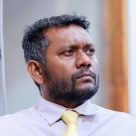
Fayyaz Ismail
Minister of Economic Development
Economy / Maldives
“SMEs are the backbone of our economy”
Minister of economic development Fayyaz Ismail tells us that one of his biggest priorities is to boost the private sector, specially SMEs and startups, which will widen the tax base.
What is this administration’s management approach to the Maldives many state-owned enterprises (SOEs)?
Management of SOEs has always been very politicized and unfortunately, that is likely to continue to happen to an extent, even as this administration tries to counter it. In order to deliver certain government pledges, we have to continue to engage with these companies. We are reforming them to make them more efficient. We want them to be involved in bigger projects in the Maldives, rather than compete with smaller and medium businesses. This is fundamental to support the development of the private sector and smaller businesses. Further, we need transparency. What we have seen over the last five years was the destruction of very good state-owned companies as tools for political ends. The scandal of the attribution of social housing in Hulhumale for political reasons, which has also damaged the Housing Development Corporation, is a perfect example of the unhealthy relations between government and SOEs and we want to put an end to it.
What are your main priorities for the economic development agenda?
We need to reinforce the country’s economic pillars. The Fisheries industry has declined over the last two decades, but even though it’s not a huge contributor to the GDP, it is a huge part of our economy and identity as well. The majority of our population is directly linked to the fisheries industry, so we want to strengthen and optimize the sector. Another main target is to significantly strengthen the agriculture industry. Our population is below 400,000, but we have over million tourists, and the supply of food relies mainly on imports. We can drastically reduce the import of food items by growing our own and potentially even exporting them, which could have a great impact on people’s lives, on businesses, and also on expanding tax revenue of the government.
In order to deliver on our pledge to improve the welfare system we need taxes. We don’t want to increase taxes, but we want to widen the tax base by creating more businesses and expanding the tourism industry. Our plan is to heavily increase destination marketing. We have tripled the budget for tourism promotion, from USD$3 million to USD$10 million, through the Maldives Marketing & PR Corporation. There will be an immediate and noticeable increase in tourist arrivals, which will have a direct impact on the economy.
What economic sectors are considered for diversifying the economy?
We have a very vocal, liberal, and talented pool of young people in the ICT sector and have failed to make use of them, so they go and work abroad for major multinationals. Now we are concentrating on creating opportunities in that sector. Another area is transshipment. The Eight Degree (to the North) and the One and a Half Degree (to the South) Transshipment Channels cross the Maldives territory, putting us in a strategic geographic position for providing transshipment services for these busy commerce lines. We are looking into developing a new transshipment port, either in the north or in the south of the country. We will face competition from more developed transshipment centers in India and Sri Lanka, but we are geographically better positioned. Services like bunkering, repairing, certain transshipment of goods, maybe even some production, refineries; all of these are possibilities. We are now engaging consultants to evaluate our options and how we can attract foreign investment for this sector.
How are you creating opportunities for SMEs?
SMEs are the backbone of our economy, so we have decided to create structures to support them. First, we need to change the way the government interacts with them. It takes 6 to 8 months for the government to pay small contractors, which means that by the time they get paid, if they already paid their suppliers and employees, they are probably bankrupt. That has to change. We also created the SME bank, designed to facilitate business loans with criteria focused on project feasibility and sustainability. While the SME bank is small for now, I believe that in 15 to 20 years it could be the biggest financial institution in the Maldives, even surpassing the Bank of Maldives.
